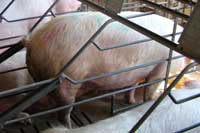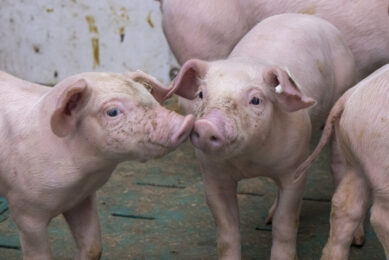Tyson shareholders question use of gestation crates

A group of Tyson Foods shareholders have submitted a resolution to the company asking them to disclose the financial and operational risks associated with its use of gestation crates.
The proposal suggests that Tyson could lose market share if it doesn’t respond to increasing consumer demand for higher animal welfare standards.
“Rising concerns over these cages have rapidly shifted the marketplace, with dozens of top global food brands—including Tyson customers—demanding change,” notes the proposal. “Tyson’s failure to disclose the risks associated with the indefinite inclusion of gestation crates in its supply chain is of concern to shareholders.”
The use of gestation crates has been a controversial subject for some time resulting in 9 US states passing legislation banning their use. And prompting companies like McDonald’s, Burger King, Costco and Oscar Mayer to set out a timetable for their discontinued use. Tyson’s major competitors, Smithfield, Cargill and Hormel, have also started moving away from the practice.
In a 2013 survey by the National Pork Board, 53% of pork producers said they do not use gestation crates or plan to stop using them in favour of group housing of sows.
An Iowa State University two-and-a-half year long economic comparison of gestation crates and group housing found that “reproductive performance can be maintained or enhanced in well-managed group housing systems…without increasing labour.” Overall, the study concluded that “group housing…resulted in a weaned pig cost that was 11% less than the cost of a weaned pig from the individual stall confinement system.”
The proposal was jointly filed by The Humane Society of the United States and socially-responsible investment firm Green Century Capital Management, and co-filed by the United Methodist Church Benefit Board, Inc.











